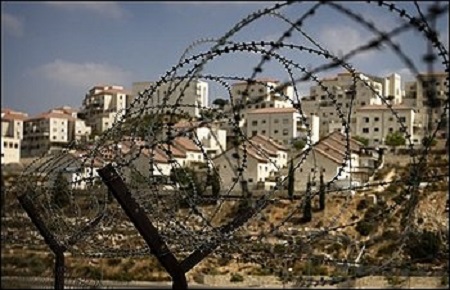UN Lists Complicit Corporations

After a four-year process, delayed by pressure from the United States Mission, the Trump Administration and members of the U.S. Congress, the United Nations Office of the High Commissioner for Human Rights (OHCHR) has issued its report on companies and commercial entities whose activities support Israeli settler colonies in occupied Palestinian territory. Mandated by a Human Rights Council’s resolution of March 2016 31/36, OHCHR received and collected data on 321 entities according to its published methodology. Former High Commissioner for Human Rights Zaid Raad al-Hussein deferred publication until his successor, current High Commissioner Michel Bachelet assumed her mandate in September 2018.
In preparing the database and report, OHCHR conducted consultations with the United Nations Working Group on Business and Human Rights and discussions with the concerned states, civil society, think tanks, academics and the companies concerned. After two redactions, the published report reduced the list to 112 commercial entities that OHCHR has reasonable grounds to conclude to have one or several activities related to Israeli settler colonies.
The legal grounds for listing these private-sector agents in the settler-colony enterprise is the prohibition in international humanitarian law and criminal law against the serious crime of population transfer, including the implantation of settlers and settlements of the Occupying Power in an occupied territory. The human rights consequences of such crimes and grave breaches are explained in a 1993 study of the UN’s Sub-Commission on the Prevention of Discrimination and Protection of Minorities. Since 1980, the UN Security Council has called upon “all States not to provide Israel with any assistance to be used specifically in connexion with settlements in the occupied territories.” The Security Council reiterated this legal position in a 2016 resolution [AR], “Condemning all measures aimed at altering the demographic composition, character and status of the Palestinian Territory occupied since 1967, underlined that “it will not recognize any changes to the 4 June 1967 lines, including with regard to Jerusalem.”
The International Law Commission explains that “…it is a crime to establish settlers in an occupied territory and to change the demographic composition of an occupied territory….Establishing settlers in an occupied territory constitutes a particularly serious misuse of power, especially since such an act could involve the disguised intent to annex the occupied territory. Changes to the demographic composition of an occupied territory seemed to the Commission to be such a serious act that it could echo the seriousness of genocide.”
The current Commissioner for Human Rights, Michelle Bachelet, has stated, “I am aware that this issue has been and will continue to be controversial.” The United States has threatened the Human Rights Council with dire consequences if any U.S. companies are harmed as a result of the lists’ publication. Included in the list are companies domiciled in Israel, France, Luxembourg, The Netherlands, Thailand and the United States.
HIC, its Members and human rights organizations generally welcomed the publication of the list of complicit enterprises as a victory for corporate accountability. Nevertheless, the list is only partial, omitting several known corporations associated with Israel’s population-transfer crimes, including those domiciled in other states. Moreover, the methodology of the OHCHR investigation omits entities registered as nonprofits, including Israel’s parastatal institutions such as the World Zionist Organization/Jewish Agency and Jewish National Fund, whose operations are dedicated to the colonization and population transfer project and operate as tax-exempt charities in some 50 other countries, including at least 17 states members of the Human Rights Council.
Any further steps in the study and use of the resulting data will depend on the members of the Human Rights Council who were supposed to assess the report at the 43rd session of the Council, in March 2020. However, following heightened restrictions on meetings and assemblies in Geneva due to the COVID-19 pandemic, the session was indefinitely suspended on Friday 13 March 2020.
Photo: The Washington Post.
|